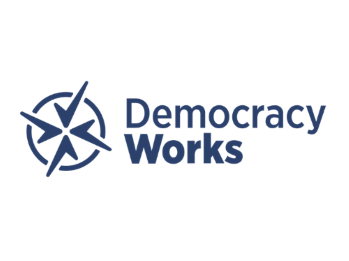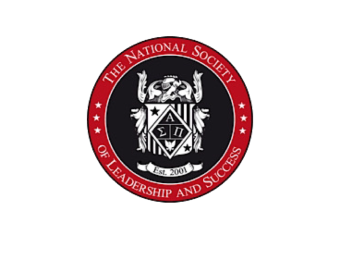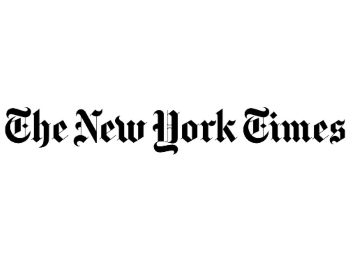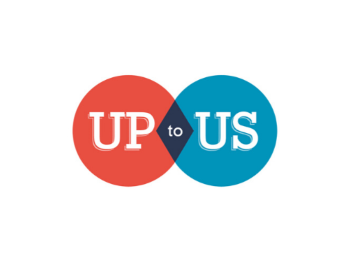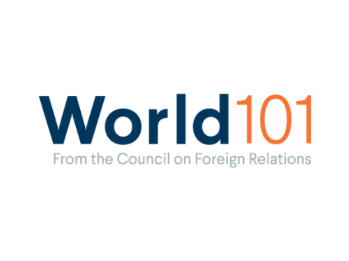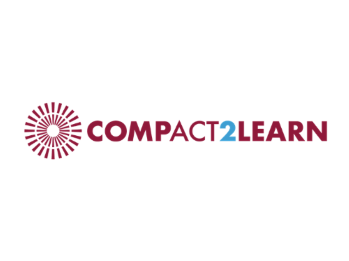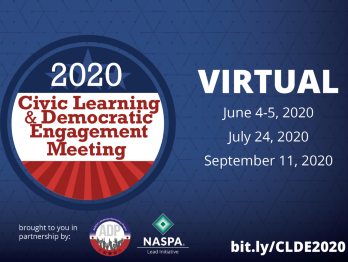
Civic Learning and Democratic Engagement Meeting
Workshop Civic Engagement Civic Learning and Democratic Engagement
June 4 - September 11, 2020
CLDE 2020 Is Going Virtual!
Following increased and overwhelming concerns about the COVID-19 pandemic and its associated effects across our country, and driven by our responsibility to ensure the best interests of our CLDE, ADP & NASPA community, we are moving the 2020 Civic Learning and Democratic Engagement (CLDE) Meeting, originally scheduled for June 3-6, 2020 in Minneapolis, MN, to a Virtual Conference. The health, well-being, and safety of our members, our communities, and our staff are of utmost importance. This was not an easy decision, but we felt this was the best way to proceed during such an unprecedented global situation.
AASCU's American Democracy Project (ADP) and NASPA are committed to advancing the civic engagement movement in higher education. Join us for our first ever virtual meeting which brings together faculty, student affairs professionals, senior campus administrators, students and community partners. Together we will ensure that students graduate from our colleges and universities--both public and private--prepared to be the informed, engaged citizens that our communities and our democracy need.
This year's virtual event will take place over three different dates:
June 4 - 5, July 24, and September 11, 2020
Participants will have opportunities to network and develop their civic-minded thinking and practices through engaging plenary sessions, informative general interest sessions, interactive virtual workshops, and roundtable discussions.
Use this hashtag to see what others are sharing #CLDE20 during the virtual conference!
Our Virtual #CLDE20 will include plenary speakers, concurrent sessions, and much more, and we regret that we are unable to accept all of the programs originally slotted for the in-person CLDE20. We contacted every speaker who was originally accepted, and many e-mails may have been filtered into the spam folder. If you have not been contacted by us to prepare your session for the Virtual CLDE20, we hope that you resubmit your session for our next in-person gathering, CLDE21 in Boston, and we look forward to seeing you at our Virtual #CLDE20. Thank you!
Presented By
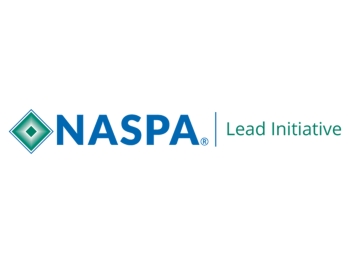
Registration
Registration Fee includes all program sessions and materials.
Individual Fee: $100
Student Fee: $50
Registration rate for undergraduate and full-time graduate students at AASCU / ADP / NASPA colleges and universities.
About
Our 2020 Civic Learning and Democratic Engagement Meeting (CLDE20) is a conference intended to facilitate exchanges of knowledge and develop a sense of community around our shared civic learning and democratic engagement work. This meeting is designed around our CLDE theory of change which poses four important questions:
- Purpose: What are the key features of the thriving democracy we aspire to enact and support through our work?
- Learning Outcomes: What knowledge, skills, and dispositions do people need in order to help create and contribute to a thriving democracy?
- Pedagogy: How can we best foster the acquisition and development of the knowledge, skills, and dispositions necessary for a thriving democracy?
- Strategy: How can we build the institutional culture, infrastructure, and relationships needed to support learning that enables a thriving democracy?
The CLDE theory of change suggests that campuses consider how best to construct campus cultures and contexts that foster:
Civic Ethos of Campus
Civic Ethos of campus: The infusion of democratic values into the customs and habits of everyday practices, structures, and interactions; the defining character of the institution and those in it that emphasizes open-mindedness, civility, the worth of each person, ethical behaviors, and concern for the well-being of others; a spirit of public-mindedness that influences the goals of the institution and its engagement with local and global communities.
Civic Literacy & Skill Building
Civic Literacy & Skill Building as a goal for every student: The cultivation of foundational knowledge about fundamental principles and debates about democracy expressed over time, both within the United States and in other countries; familiarity with several key historical struggles, campaigns, and social movements undertaken to achieve the full promise of democracy; the ability to think critically about complex issues and to seek and evaluate information about issues that have public consequences.
Civic Inquiry
Civic Inquiry integrated within the majors and general education: The practice of inquiring about the civic dimensions and public consequences of a subject of study; the exploration of the impact of choices on different constituencies and entities, including the planet; the deliberate consideration of differing points of views; the ability to describe and analyze civic intellectual debates within one’s major or areas of study.
Civic Action as Lifelong Practice
Civic Action as lifelong practice: The capacity and commitment both to participate constructively with diverse others and to work collectively to address common problems; the practice of working in a pluralistic society and world to improve the quality of people’s lives and the sustainability of the planet; the ability to analyze systems in order to plan and engage in public action; the moral and political courage to take risks to achieve a greater public good.
Civic Agency
Civic Agency involves the capacities of citizens to work collaboratively across differences like partisan ideology, faith traditions, income, geography, race, and ethnicity to address common challenges, solve problems and create common ground; requires a set of individual skills, knowledge, and predispositions; also involves questions of institutional design, particularly how to constitute groups and institutions for sustainable collective action.
Sponsors
A sponsor and exhibitor virtual application is now available. Please email Kristie Jacobsen Jerde [email protected] from NASPA and Ramona Crawford [email protected] from AASCU with any questions.
Thank You to Our Silver Sponsors
Thank You to Our Bronze Level Sponsors
Questions?
Please contact NASPA if you have any further questions about submitting a program proposal for the 2020 Civic Learning and Democratic Engagement Meeting.
Jill Dunlap
Director of Research and Practice, NASPA
Phone: (202) 719-1196
Email: [email protected]
Cathy Copeland
Program Coordinator, American Democracy Project, American Association of State Colleges and Universities (AASCU)
Phone: (202) 478-7833
Email: [email protected]
Schedule
All scheduled times listed are in Eastern Daylight Time.
Schedule
June 4
June 5
July 24
September 11
4:00 PM - 6:00 PM
Open Plenary & Civic Ed Talk
Debate in Democracy
Presenter(s)
Janet Brown
5:00 PM - 6:00 PM
Opening Panel
9:30 AM - 10:45 AM
Meeting: Community Colleges
11:00 AM - 12:15 PM
Special Topic Sessions
Moving an Institution Forward for the Public Good: Steps That Seem to Work.
Deliberative Dialogue: NASPA
Liaison
12:30 PM - 1:30 PM
Concurrent Sessions
Details
When Democracy Wasn’t Meant for You – Engaging Students in the Margins
Presenter(s)
David Blount, Purvi Patel, Lindsay Gassman, Theresa Kuou
In building for student CLDE, we must consider how our work ensures all people can fully actualize their role as citizens in our democracy. This is especially important given the historical legacy of oppression across different identities, resulting in persistent barriers to civic participation for minoritized and marginalized populations. Facilitated by students and staff from multiple institutions, participants will discuss how oppression continues to manifest, uplift change management cases, and develop strategies for more equitable CLDE on our campuses.
Shaping Dialogues to Generate Ideas and Support for Strengthening Campus Democratic Engagement
Presenter(s)
Lori Britt, Abe Goldberg, Steven Koether, Barb Pickering, Larissa Churchill, Jennifer Boehm
Participants will learn to plan, design, and facilitate dialogues that encourage their campuses to think about their “civic climate” and collaboratively identify ways to continue to prioritize and integrate the work of preparing students to be informed and engaged citizens. Workshop leaders have been conducting dialogues on civic climate at their own campuses over the past two years and will offer insights on the challenges and strategies to overcome them. A dialogue planning template and resources will be shared.
Student Perspectives on Civic Engagement Leadership at Salt Lake Community College
Presenter(s)
Samantha Collins, Samantha Paredas, Aimee Tanner, Josh Salas, Jazmin Meza de la Cruz, Talon Garner
Community college students leaders face unique challenges balancing work, family, health, and academic responsibilities with their important role in advancing civic engagement efforts on campus and in the community. In this session, students from the SLCC Student Leaders in Civic Engagement (SLiCE) program will share their experience in an intensive civic engagement student leadership program and provide recommendations for community colleges developing similar programming.
Sponsored Session
1:45 PM - 2:45 PM
Concurrent Sessions
Details
Laboratories of Democracy: Does Campus Involvement Foster Student Political Efficacy?
Presenter(s)
Adam Gismondi
Scholars have examined the learning outcomes of co-curricular involvement (Astin, 1993; Pascarella & Terenzini, 1991), but much remains unexplored in terms of the civic and political outcomes of student co-curricular engagement. This session will discuss findings from our recently completed study that asks: To what extent, and in what ways, does college student involvement in student organizations contribute to students' sense of political efficacy, or their “perceptions of powerfulness (or powerlessness) in the political realm” (Morrell, 2003)?
Civic Engagement and Social Justice: A Pragmatic Application to the 21st Century Community College Classroom
Presenter(s)
Dawn Herd-Clark, Monique Mavour, Kristopher Merceron
Civic engagement and social justice are topics that maintain the ability to impact individuals' personally, professionally, and academically. This presentation outlines the importance of having discussions centered on equality, integrity and community involvement in two-year institutional classrooms, and examines strategies to incorporate these concepts across history, business, and communication courses. The goal of this presentation is to highlight the connections between course material and the students' civic responsibilities.
Democratic Deliberation: Free Speech and the Inclusive Campus
Presenter(s)
Kara Lindaman, John Dedrick, William Muse, Kara Dillard
In partnership with the National Constitutional Center and the Kettering Foundation, new materials for democratic deliberation are introduced to engage campus communities in Constitution Day. Building from the NASPA issue guide, "Free Speech and the Inclusive Campus" and the NIFI issue guide, "A House Divided," presenters share how these are built into the campus learning on the U.S. Constitution for an intentional educational effort with secondary teachers and in higher education.
Sponsored Session
3:00 PM - 4:00 PM
Concurrent Sessions
Details
Privilege Discrimination and the Student Experience: Day in the Life of Poverty
Presenter(s)
Jessica Perrone
The WSU Center for Civic Engagement has developed a model adapted from other poverty simulations to create a refined, yet highly impactful experience. By addressing issues of public concern, the poverty simulation encourages public dialogue, civil discourse, and is a creative method of sparking an interest in lifelong civic action and a thriving democracy. Participants will receive a Poverty Simulation Toolkit that can be modified and implemented to meet the needs of their groups, students, or communities.
EAT Initiative: Addressing Food Insecurity Among College Students
Presenter(s)
Bekah Selby, Rob Catlett
Food insecurity among college students is a growing concern for universities and colleges nationwide. In order to create an environment conducive to democratic engagement, Emporia State University created the Emporia at the Table (EAT) initiative to bring Student and Academic Affairs together to combat food insecurity through community action, research, and teaching. Merging art, econonomics, graphic-design, poetry, sociology, and others, the project features successes and lessons learned in the implementation of EAT on our campus.
Creating Opportunities for Civic Engagement at Three Community Colleges
Presenter(s)
Mary Tosch, Charlotte Quigley, Samantha Collins
In this session, three community colleges will provide an overview of each institution's opportunities offered for students to be civically engaged as connected to each college's mission, goals, pedagogy, and strategic plans. By discussing foundations including program origins, growth, partnerships, and outcomes, the presenters will outline highlights, lessons learned, opportunities for growth, and next steps.
Digital Tools as a Facilitator for Civic Dialogue
Presenter(s)
Lindsay Gassman, David Blount
This interactive workshop will explore how different digital tools can be utilized to facilitate civic dialogue. In order to maximize learning, we will focus primarily on using Poll Everywhere for this purpose, but we will also introduce social media tools as well as QR codes and other multimedia forms. By the end of the program, participants will be familiar with a variety of digital tools and how they can be applied to spark civic dialogue with both students and alumni.
4:30 PM - 5:30 PM
Plenary Session
Closing Plenary: Eboo Patel: Unity in Time of Pandemic
Presenter(s)
Eboo Patel
11:00 AM - 12:30 PM
Opening Plenary- Planning for the Fall
Opening Panel with Provost and VP Student Affairs: A look back, a look ahead, leading in a time of transition
12:45 PM - 2:00 PM
Special Topic Sessions
CFR
NYT
Assessment
2:15 PM - 3:15 PM
Concurrent Sessions
Details
Civic Life is Everywhere: Applying the CLDE Theory of Change
Presenter(s)
Romy Hubler, David Hoffman
The CLDE Theory of Change asserts that civic life is everywhere (not just in the voting booth or at a community service site), and calls for pedagogies in which learners are co-creators of knowledge and partners in envisioning and developing learning environments. This interactive session will explore what such pedagogies look like in practice, highlighting innovative approaches to service, voter engagement, and activism the facilitators have developed and implemented at the University of Maryland, Baltimore County (UMBC).
Embracing the Gap: The Role of Faculty in Civic Learning & Community Engagement
Presnter(s)
Morgan Lewing, George Mehaffy
The concept of “bridging the gap” between academic and student efforts has become fairly ubiquitous in the field of civic learning and community engagement. However, while the roles of both parties are essential to effectively promoting CLDE, they are also quite different. The purpose of this presentation is to explore the nuances that are specific to faculty members (i.e., responsibilities, opportunities, expectations, prior experiences, and reward systems) in order to more effectively engage students, colleagues, and communities.
An Equity Lens on Voting: Espousing an Intersectional Perspective for Voter Parity
Presenter(s)
Kathryn Quintin, Carmen Linero-Lopez, Christina Sanders, Jessica Davis, Julie Wu
When planning a civic engagement plan, there are often blind spots that organizers face that can hurt the outreach of underrepresented communities and students of color. Campus leaders must approach civic engagement efforts addressing the nuances and unique experiences of their student body while prioritizing those who historically have been disenfranchised. In this workshop, attendees will participate in a scenario activity that will have them critically analyze how does their voter engagement plan strives for inclusion, equity, and justice.
A Break from the Code: Utilizing Civic Reflection in New Student Orientation
Presenter(s)
Michael Webber
This session highlights a collaboration at Salisbury University to promote civic ethos through a new student orientation program. Called civic reflection, the strategy engages nearly 1,400 incoming students in conversations facilitated by 150 matriculated students and faculty/staff. Participants will experience a civic reflection, in which groups of people think and talk together about the beliefs that underlie our civic engagement. Brainstorm implementation methods for your campus. Learn about the program's successes through two years of data.
Going beyond National Voter Registration Day towards Comprehensive Democratic Action Planning
Presenter(s)
Amy Koeckes, Kathryn Quintin, Connie Jorgensen
There is a growing community of colleges and universities participating in events like National Voter Registration Day (NVRD). However, planning for NVRD is not enough for comprehensive democratic engagement on campus. Our workshop will explore strategies that use NVRD as a springboard to expand civic engagement activities on campus to create sustainable, long-term, and year-round democratic action plans. This includes stories from campuses that have used NVRD to implement this vision.
3:30 PM - 4:00 PM
Student Panel
Presenter(s)
David Hoffman
4:00 PM - 5:00 PM
Working Session
TOC and Moving Forward
Presenter(s)
David Hoffman
11:00 AM - 12:15 PM
Plenary Session
Voter Protection
12:30 PM - 1:00 PM
Concurrent Sessions
Details
Kings, Queens, & In-Betweens: Using film as a conversation-starter for community engagement
Presenter(s)
Gabrielle Burton, Jennifer Burton
In this Think Tank discussion, we will explore how we use the art of film to start community conversations and engagement on the complex subject of gender, performance, and identity. Using a documentary about drag performers in Ohio, we work with colleges and community organizations to create space for open discussions about gender stereotypes, how we might think beyond binary categorizing and assumptions, address practical applications (e.g. medical treatment), and build stronger community by embracing the real-world complexity around us.
Navigating state election codes: Overcoming legal barriers to foster democratically-engaged campuses
Presenter(s)
Marissa Corrente, Kassie Phebillo, Steven Adelson, Mike Burns
It can be challenging for campuses to navigate nuanced election laws as they develop and then implement a voter engagement plan for their institution. However, both at the individual level and at the larger coalition level, there are promising practices colleges and universities can institute to follow these laws while still fostering an ethos of voting across campus. Join facilitators for an engaging workshop and leave with actionable steps to take back to your campus community.
Campus Engagement at a Time of National Polarization
Presenter(s)
William Froehlich, Grande Lum, Robert Solomon
Student and university leaders have expressed concern about the ways in which the polarized political climate at the national level may be reflected in volatile conflict on campuses. The Divided Community Project (go.osu.edu/dcp) has collated ideas which convey that cumulative experience of campuses addressing community divisoin and its unerlying causes. This session will share lessons learned from campus communities accorss the country.
May I see your (student) ID?
Presenter(s)
Amanda Hanson
Over the past decade or so, voter ID laws have grown in popularity across the country as states have considered, voted on, or implemented them. The implementation voter ID laws creates a fascinating intersection of higher education law, social justice and inclusion, and organizational politics unlike any other, leading to a larger question for community & civic engagement professionals of “how can we continue to advocate on the behalf of students affected by a voter ID law while remaining non-partisan?
1:45 PM - 2:45 PM
Concurrent Sessions
Details
Higher Education Policy Update: Federal & State Priorities in 2020
Presenter(s)
Teri Hinds, Thomas Harnisch
Many of the issues occupying the minds of public policymakers around the country are directly related to the day to day work of higher education professionals. This session will provide a broad overview of the current federal and state policy landscape related to higher education. It is expected that the session will cover financial aid, costs, and student debt; sexual assault prevention and response; equity and inclusion for trans students, immigrants, and veterans; guns on campus; and campus free speech.
Creating a Political Engagement Coalition on Your Campus
Presenter(s)
Leah Murray, Teresa Martinez
Weber State University evolved its political engagement efforts from a faculty project to a fully institutionalized initiative on campus. The University has a five-student leadership team involved with the American Democracy Project. We also have a 30+ person Political Engagement Coalition, which includes faculty, staff, community members, and students, that reports to the Chief Diversity Officer. Join us to learn how Weber State University has used this coalition to make forward progress toward a campus culture that values political engagement.
Impacting the Campus Community with Equity Peer Leaders
Presenter(s)
Elizabeth Parmelee, Amber Mozet
What can we learn from students who have spent a year engaging their campus in conversations about equity, identity and inclusion? Come and find out! MSU Denver's Equity Peer Leaders will share their insights into leadership and courage, how they have learned to lead productive conversations across difference and create a more socially just campus for themselves and their peers.
Sponsored Session
3:00 PM - 4:00 PM
Concurrent Sessions
Details
Faculty Attitudes Toward Voter Engagement Efforts in Their Classrooms
Presenter(s)
Jacob Wilson, Rachael Houston, Michelle Black
Research finds a positive relationship between the extent to which students perceive climates that promote active citizenship and students' acquisition of civic skills and commitment. Findings show that students perceive faculty members as advocates for communicating the expectation of involved citizenship. However, it is unclear how active faculty are in talking to their students about opportunities to engage in elections. To fill this gap, we will share results from a nationally representative, multidisciplinary survey of faculty at 2- and 4-year campuses.
Shaping Long-Term Sustainability of Democratic Commitments on Campus: Lessons Learned and Opportunities Realized on IDHE-ADP Political Learning and Democratic Engagement Project Partner Campuses
2020 Vision: Teaching Students to See Clearly in the Post-Truth Fog
Sponsored Session
4:30 PM - 5:30 PM
Plenary & Closing Remarks
We the People - Spoken Word Piece
Presenter(s)
Bill Payne
Closing Remarks
FAQ
1. What is the status of the 2020 Civic Learning and Democratic Engagement Meeting?
Following increased and overwhelming concerns about the COVID-19 pandemic and its associated effects across our country, and driven by our responsibility to ensure the best interests of our NASPA and AASCU communities, we are unable to move forward with the in-person 2020 Civic Learning and Democratic Engagement (CLDE) Meeting, scheduled for June 3-6, 2020 in Minneapolis, MN. The health, well-being, and safety of our members, our communities, and our staff are of utmost importance. This was not an easy decision, but we felt this was the best way to proceed during such an unprecedented global situation.
Instead, we are excited to provide a focused approach to engagement and learning through a virtual CLDE conference. This virtual experience will take place in a staggered format on the following dates:
· June 4-5, 2020
· July 24, 2020
· September 11, 2020
2. Why was a decision made to make the meeting virtual?
The decision was based on several factors, including, but not limited to:
-
The World Health Organization declared COVID-19 to be a pandemic on March 11, 2020.
-
Travel bans/restrictions imposed upon our attendees, exhibitors, and sponsors by state-sponsored stay-at-home orders and university policies prohibiting travel were considered when making the decision to move to a virtual meeting.
-
The expanding trajectory of the virus, based on tools such as the Johns Hopkins University Center for Systems Science and Engineering COVID-19 tracking device that monitors the escalation of COVID-19 domestically and globally.
3. Will my fees (registration, pre-conferences, etc.) be refunded? When?
All those who registered for the CLDE 2020 meeting prior to the COVID pandemic have been notified about options for refunds and transferring registration fees to the virtual meeting.
4. What should I do if I reserved my hotel room at the conference hotel?
If you reserved a hotel room at the Minneapolis Marriott City Center within the NASPA housing block, your room reservation has been automatically canceled by the hotel. If you made a hotel reservation outside of the block or at another venue, you will need to cancel directly. Most hotels require cancellation at least 72 hours in advance of the check-in date.
5. Will NASPA help with fees associated with the cancellation of my travel reservations?
NASPA is not able to assist with travel arrangements you made on your own. However, most airlines have made special provisions to address COVID-19 related issues. Please contact your travel agent or the airline directly to learn more about options.
6. What would happen if I was scheduled to present, but my session was cancelled?
NASPA appreciates the time, effort, and talents of our presenters who were preparing to deliver exceptional content. The planning committee could not accommodate all previously accepted sessions as part of the move to a virtual format for the meeting. All presenters have been contacted by NASPA and AASCU about their presentation status, and everyone who submitted a proposal for this year is highly encouraged to submit their proposals again for the 2021 conference. The 2021 Call for Proposals will open in October 2020. Details will be announced on the website and via email. Please contact Jill Dunlap, Senior Director for Research, Policy, and Civic Engagement, at [email protected] if you have further questions.
7. I would like to present at the 2021 conference, what is the process?
The 2021 Call for Proposals will open in October 2020. Details will be announced on our website and via email.
8. Who can I contact if I have additional questions?
Please contact Jill Dunlap, Senior Director for Research, Policy, and Civic Engagement, at j[email protected] if you have further questions.
